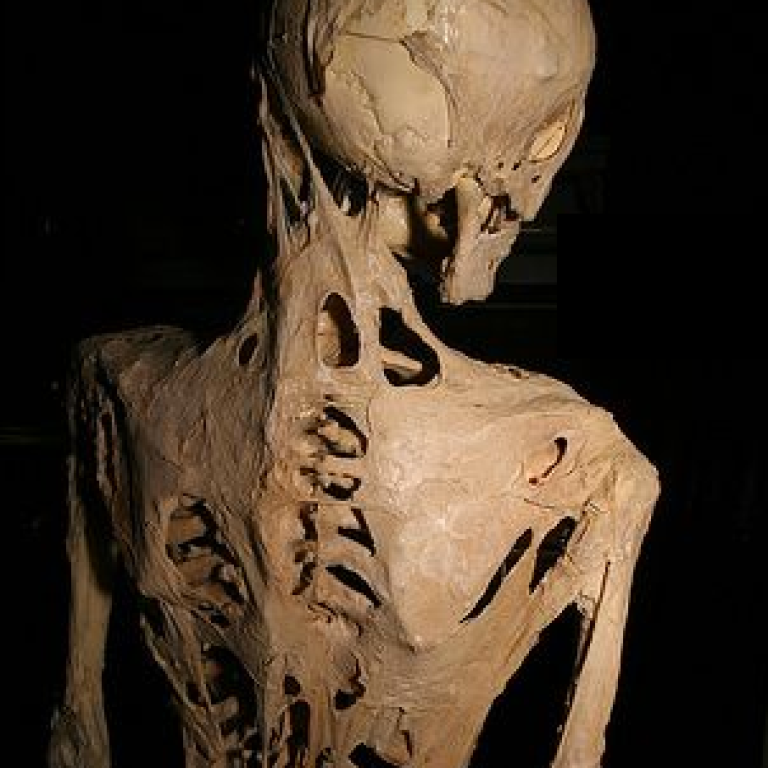
Rare ‘stone man syndrome’ turning Chinese teenager's body to bone
A teenager from Sichuan province who complained of stiff ankles was found to be suffering from a genetic disease that will eventually “freeze” her entire body.
Doctors at Shanghai’s Tongji Hospital said on Monday that Ni Min, 14, had the extremely rare condition known as (FOP) or “stone man syndrome”.
The condition – so rare that it only affects around 600 people worldwide – turns muscles, ligaments and tendons into bone, eventually leaving sufferers completely immobilised, trapped in a second skeleton.
In one of the best known cases of FOP, American Harry Eastlack developed the condition aged 10. By the time he died in November 1973, his body had completely turned into bone, leaving him only able to move his lips. Eastlack’s body was donated to science in the hope that research could be done on it to help fight the disease.
Patients with FOP have to be extremely careful to avoid injury, as a bump or fall may trigger muscle swelling and inflammation followed by rapid ossification. This reaction also means a surgical solution is impossible, as the removal of extra bone growth has been shown to cause the body to “repair” the area with more bone.
Doctors said the disease was detected in Ni at an early stage, and proper treatment may delay its advance and give her a few more years of mobility.
“Her condition is not very serious and we have prescribed medicine for her,” physician Zhang Keqin told the . “The results should be seen in six months, when she’ll come back for a check-up.”
Sufferers of FOP “usually die in their 40s when they can no longer breathe because of pressure on their lungs,” the doctor added.
Currently the only effective treatment for FOP is over-the-counter medication to alleviate sufferers’ pain, but a new medicine for treating the disease is under trial in the US and is expected to hit the market next year.
“I hope the medicine brings hope to patients,” Zhang said.
